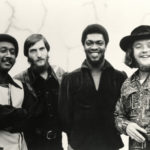The Innovators: Stax Artist Spotlights
The Staple Singers
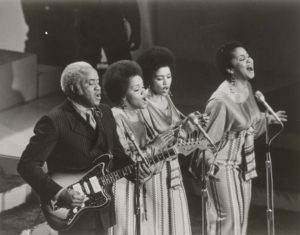
From their earliest days on the gospel circuit to their induction into the Rock and Roll Hall of Fame, GRAMMY® Lifetime Achievement Award recipients The Staple Singers forged a unique and influential path in music history. Uniting fans of all colors in a starkly divided era, The Staple Singers delivered powerful anthems of equality, wrapped in rich—and deliciously catchy— melodies. Today, more than half a century later, the Staple Singers’ empowering music continues to resonate with music fans and activists alike.
It all began in the Chicago home of Roebuck “Pops” Staples (1914-2000), where the Mississippi-born father shared his love of music with his children. Every evening, Pops brought out his acoustic guitar and sang spirituals with Cleotha (1934-2013), Yvonne (1937-2018), Mavis (b. 1939), and Pervis (1935-2021). The family began performing in local churches around 1948, but it was apparent that their talents would take them much farther.
Over the next decade, The Staple Singers became one of the top gospel acts in the country, thanks to a variety of releases and non-stop touring. Mavis, in particular, turned heads with her deep and soulful vocals. In 1957, the group—which consisted of Pops, Cleotha, Mavis, and Pervis (later replaced by Yvonne)—scored their first hit with “Uncloudy Day,” followed by acoustic selections like “Will the Circle Be Unbroken,” “Help Me, Jesus,” and “Swing Down Chariot (Let Me Ride).”
While The Staple Singers could have easily continued on this path with great success, a 1963 performance in Montgomery, AL—attended by Dr. Martin Luther King—profoundly altered their career. Meeting with the civil rights leader, the Staples were inspired to shift the focus of their songs to support Dr. King’s peaceful calls for freedom and equality. The group soon became known for their politically charged “message songs,” which can be heard in albums like 1965’s Freedom Highway, 1966’s Why, and 1968’s Soul Folk in Action. The latter LP, which marked their Stax debut, portrayed the struggles of Black Americans in such poignant and pointed songs as “Long Walk to D.C.” and “The Ghetto.”
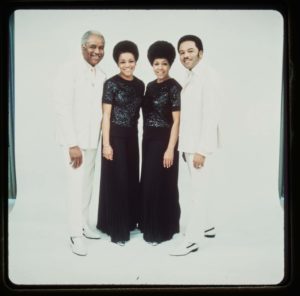 It was under Stax, however, that the Staples’ message made its way to the masses. Releasing six albums between 1968-1975, the group became internationally renowned soul stars. There, they scored their first Top Ten R&B LPs (1971’s The Staple Swingers and 1972’s Be Altitude: Respect Yourself) plus many of their biggest hits, including “Respect Yourself” (No.2 on the Soul/R&B chart); “I’ll Take You There” (their first No.1 on the Billboard Hot 100); and the Top Ten R&B single, “If You’re Ready (Come Go With Me).” During their tenure at Stax, the group also played some of their highest-profile shows, including a memorable set at Los Angeles’ legendary Wattstax music festival in 1972.
It was under Stax, however, that the Staples’ message made its way to the masses. Releasing six albums between 1968-1975, the group became internationally renowned soul stars. There, they scored their first Top Ten R&B LPs (1971’s The Staple Swingers and 1972’s Be Altitude: Respect Yourself) plus many of their biggest hits, including “Respect Yourself” (No.2 on the Soul/R&B chart); “I’ll Take You There” (their first No.1 on the Billboard Hot 100); and the Top Ten R&B single, “If You’re Ready (Come Go With Me).” During their tenure at Stax, the group also played some of their highest-profile shows, including a memorable set at Los Angeles’ legendary Wattstax music festival in 1972.
After Stax closed its doors, The Staple Singers continued to enjoy an active career—scoring another No.1 hit with “Let’s Do it Again” (1975) and famously performing “The Weight” with The Band for the iconic concert film, The Last Waltz (1976). The group released their final album, Turning Point, in 1984. In more recent years, Mavis has enjoyed continued success, inspiring a new generation of fans through solo projects and collaborations. In 2016, she was the subject of the Peabody Award-winning documentary Mavis! and was recognized as a Kennedy Center Honoree for her contributions as a musician and activist.
STAX FAX
- The Staple Singers’ song “Why (Am I Treated So Bad),” off 1966’s Why, was reportedly one of Dr. Martin Luther King’s favorite songs.
- Among the group’s many honors was a marker on the Mississippi Blues Trail in Drew, MS, where Pops Staples grew up. Surrounded by the Delta’s rich blues tradition, Staples was deeply inspired by artists like Howlin’ Wolf and Charley Patton. As a teenager, he often performed in local establishments and sang with several gospel groups.
- The Staple Singers didn’t just cross over to the soul and pop worlds—they also performed alongside rock’s biggest stars. Thanks in part to an appearance at the 1964 Newport Folk Festival, where they found a new audience in the burgeoning counterculture movement, the Staples regularly played venues like The Fillmore East and West, sharing the bill with such acts as The Grateful Dead, Janis Joplin, and Santana.
Essential Tracks
I’ll Take You There
Respect Yourself
READ MORE
“For Mavis Staples, The Music Of The Civil Rights Era Couldn't Be More Relevant Today” | NPR, 2016.
“Be Altitude: Respect Yourself: How The Staple Singers Took Us Higher” | uDiscoverMusic, 2021
“Sound of Civil Rights Rings Out in Resurrected Staple Singers Records” | Los Angeles Times, 2015
SHOP The Staple Singers
[wps_products collection="The Staple Singers" sort_by="manual" excludes="buy-button, description" items_per_row="3" show_featured_only="true" wps_products page_size="8" limit="8" carousel="true" ]
The Innovators: Stax Artist Spotlights ARCHIVE
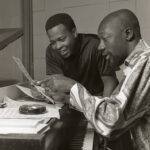
Stax Records — After 1975
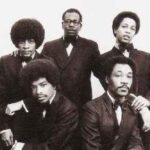
Ollie & The Nightingales
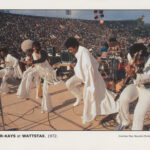
The Bar-Kays
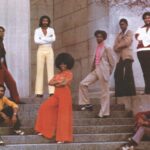
24-Carat Black

The Temprees
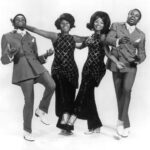
The Soul Children

The Mar-Keys
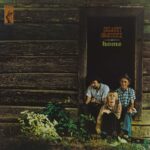
Delaney & Bonnie

Stax Groups – The Astors, Jeanne & The Darlings & the Charmels

The Mad Lads
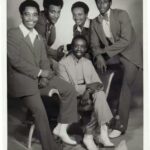
The Dramatics
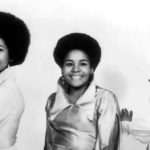
The Emotions

Johnnie Taylor
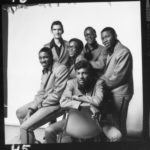
The Bar-Kays

Otis Redding
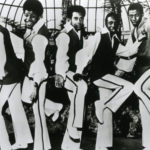
The Dramatics
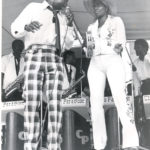
RUFUS & CARLA THOMAS
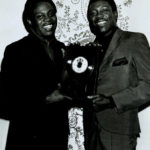
Sam & Dave

The Emotions
